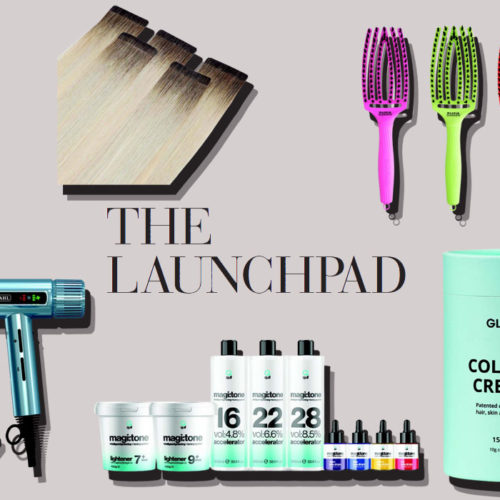Naeemah LaFond, amika’s Global Artistic Director, is an innovative leader in the hair industry and has always been a champion of diversity and change: “There’s a global conversation about racism and inequality that is taking place and I’m cautiously optimistic to see that my colleagues in the hair care industry have an open ear and are ready to join in on the conversation. I think that outside of what is being done in your personal lives to advocate for change and injustice towards black people, that there also needs to be an internal look at your professional spaces and the changes that need to be made there. I believe that the first step lies in recognizing the disproportionate lack of access that black people have to opportunities in this industry which lead to systematic and economic inequalities. I want to be proactive, so I’ve made a list of ways that decision makers and leaders can help in making a real change in our industry that goes beyond a social media post. We are at a historical moment and I along with many of my peers are open to having this conversation with you (as awkward as it may get) so that we can advance as an industry in a way that is in true representation of all of its artists. Let’s put it all on the table. Our Industry as a collective needs to do better. Our artistry is owed that. Let’s do the work.” – Naeemah LaFond
Naeemah has created a powerful and informative guide
“How Brands and Industry Decision Makers Can Support Black Hair Stylists”
1- Hire us as hair stylists on your creative teams. Don’t just put our work on your mood boards – put us on the call sheet.
2- Create Equal Opportunity. Don’t ONLY hire black freelancers when you have black talent/models – we can do it all.
3- Normalize black creatives in the beauty industry and in the editorial space. Publish our work in your magazines and other media platforms.
4- Normalize hiring black leads. There is a fine line between being an assistant and being a ghost artist. Also, don’t only hire black assistants when you need someone to do braids or prep natural hair for you. Black assistant can also do it all too. Open the areas of opportunity.
5- Be INTENTIONAL about inclusivity. We want representation in all of the opportunities not just the ones you need a black perspective or a black face for. Go out of your way to make it happen.
6- Black hair Stylists also have specialties and are multilayered. Recognize that we are also mega influencers, celebrity stylists, film/TV hair stylists, editorial stylists, theater hair stylists, wig specialists, hair cutting specialists, hair color specialists, not just experts on black hair. Allow us to lend our voices to all conversations whether it be on your panels, educational platforms, or as contributors to your publications.
7- Hire black educators. Put them on your teams, on your stages, and in your video tutorials. We are curriculum writers, content creators, experienced educators, and motivational public speakers.
8- Add natural hair/ texture education to your repertoire. As a salon owner, make curl care and natural texture education mandatory so that your services can be available to anyone who walks into your salon. Seek those educators who specialize in this category to come into your salons and teach.
9- Salon owners: Create space for equal opportunity and advancement within your teams
10- Understand that an artist being black doesn’t automatically mean that they specialize in curl care/natural texture. Some do, some don’t (see #6). Just as non-black artists have the creative freedom to do all hair without a label being imposed on them, we want the same respect. Let us tell you what our expertise is.
11- Give credit. Don’t wipe out and discredit our contributions to the beauty industry by renaming and repackaging techniques that we have created or techniques that we have been using for years.





